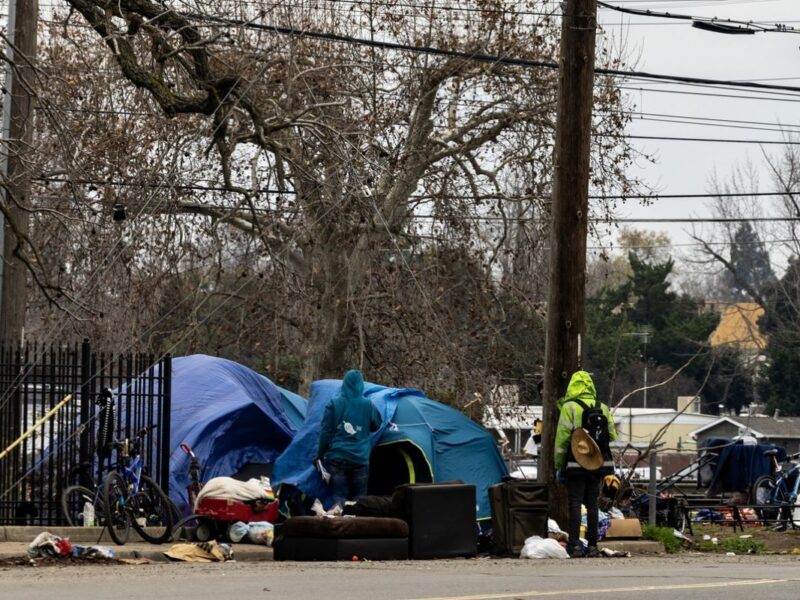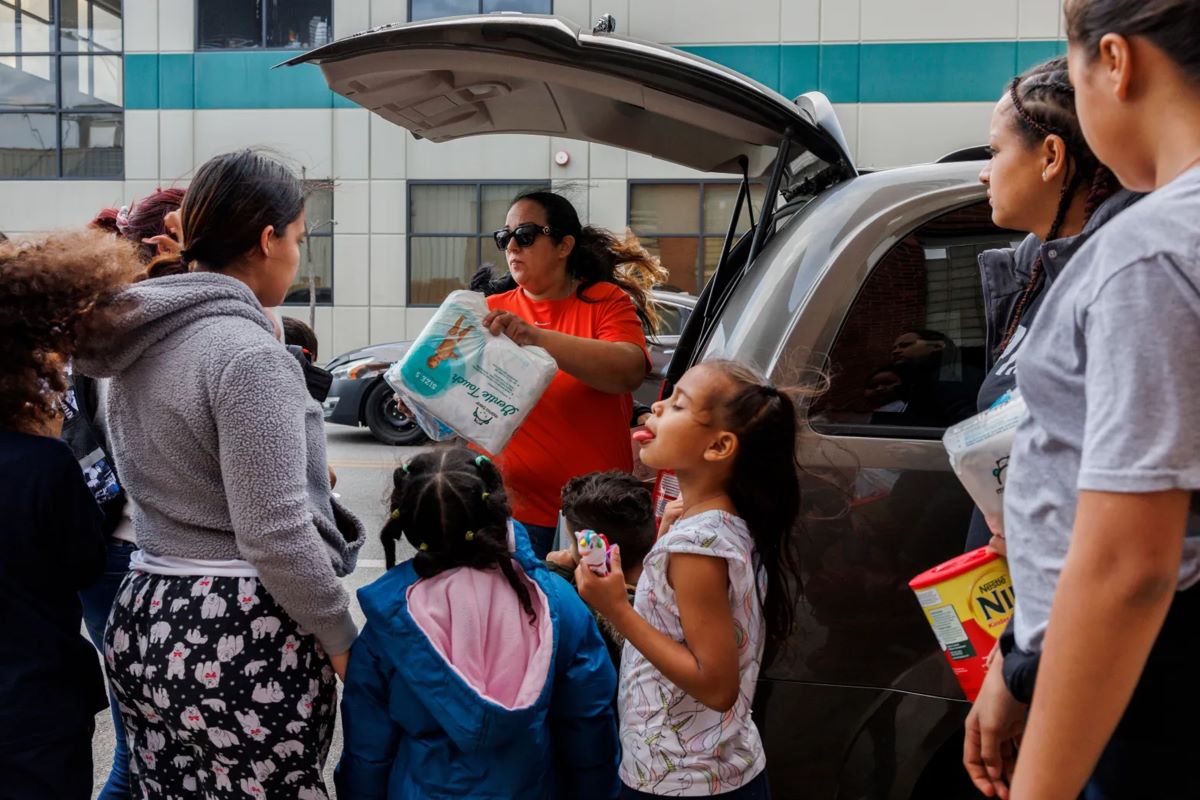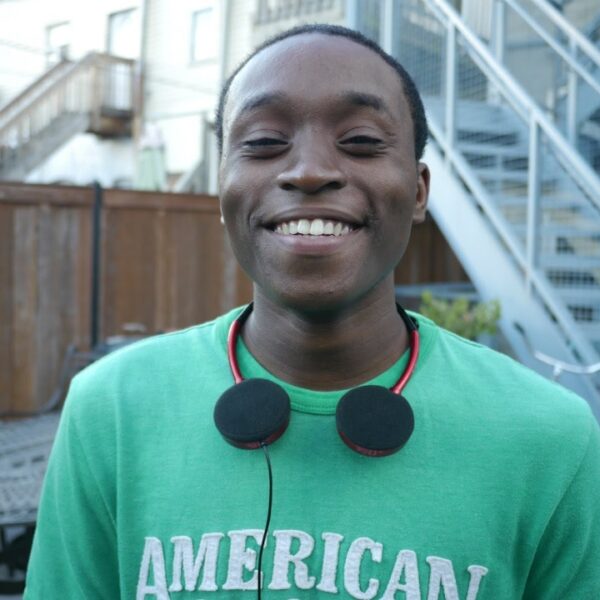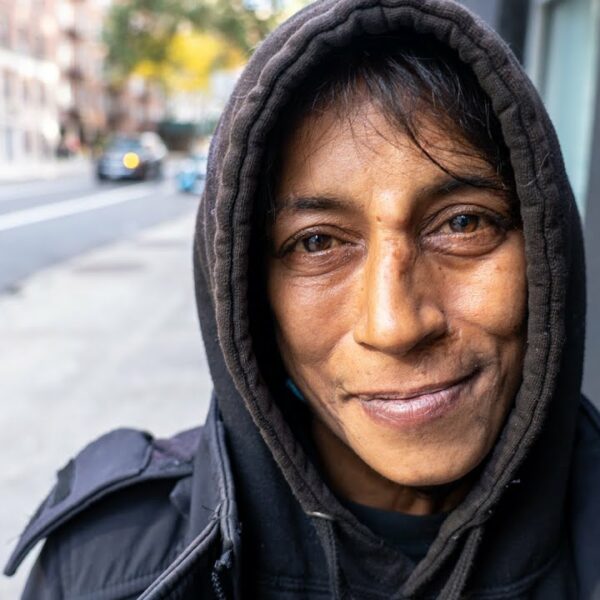Like New York City and Denver, Chicago receives thousands upon thousands of migrants from Texas. In all cities, shelter time limits are in place, often forcing migrants back out on the street after a couple of months.
In Chicago, local backlash has made matters worse. While hundreds of migrants sleep on floors and in tents outside city police stations, dozens of protesters gather near a construction site where one of two new shelters are being built in Brighton Park.
“These people are just getting off the bus, and everything’s given to them,” said one of the demonstrators, longtime resident Ricardo Palacios. “As a taxpayer, I don’t think that’s right.”
While this is happening, five-year-old Juan Carlos Martinez dies at a Pilsen migrant shelter that has received complaints about its conditions, including dirty bathrooms and cockroach infestations. Local leaders in the Latino community have been asking the city for clarity about what the living conditions are like for the migrants.
“Several other residents there were hospitalized in the days after the child’s death,” according to ABC 7 Chicago. “The Pilsen shelter was originally planned to house 1,000 new arrivals. It now holds 2,500.”
Migrants are also struggling with the city’s frigid winter season.
The 60-day shelter limit only adds that much more tension to an already traumatic experience. For many migrants and their families, they have had a difficult and scary journey as they come seeking asylum in the United States.
Moreover, such a short shelter limit only disrupts the stability and security migrants and their families have been able to secure so far. If a migrant family is required to give up their shelter spot, their children may be pulled out of school, and their parents could potentially lose their jobs as their lives are uprooted once again. This puts the migrant family back at square one, completely uprooting any security they have gained since arriving in Chicago. It makes no sense.
While the state of Chicago announced an additional $160 million in funding and Cook County another $90 million, earmarked specifically to support migrants, that new funding will also come with changes.
According to WBEZ Chicago, “new funding will be halved from six months total of assistance to just three months and a move-in fee for those currently in the city’s shelter system in an effort to fund more households. New migrants entering the shelter system will not be eligible to receive the rental subsidies. Nearly 3,600 applications have been received for rental assistance.”
Although the city has helped house 7,000 people, including securing long-term housing for 2,700 households, there is concern about how families can continue to afford their apartments after receiving rental assistance. Many migrants are still waiting for applications for temporary protected status and work authorizations to be approved.
Will three months of rental assistance provide a realistic safety net for these families? What about the gap between rental assistance and the wages a migrant family can earn? Many will likely be minimum wage earners.
Housing and the general cost of living can be a challenge for anyone. It’s more challenging for formerly homeless people and even more so for formerly homeless migrants. These factors must be taken into account. To do so, we must face the realities of what causes homelessness to begin with:
- lack of living wages
- shortage of affordable housing
- lack of social services and programs to effectively address other barriers to stable living
There is no question about the complications. However, what’s often not equated is the impact of anti-migrant attitudes. It’s not just protests against the development of much-needed shelters, but the anti-migrant messaging is bad for all fights against homelessness.
The public display of anti-migrant demonstrations makes way for poor living conditions and even the death of a child, as we’ve seen. Additionally, anti-migrant attitudes are often based on assumptions and, sometimes, even misinformation.
Migrant families are not coming off the bus and “having everything handed to them.” Yet, the fact that so many Americans believe this is concerning and dangerous.
Every migrant that comes off those buses has turned themselves in to border patrol authorities and legally applied for asylum. Migrants seeking asylum are not trafficking drugs, nor are they illegally “sneaking” into the United States. They have done the right and best things with their choices, and they deserve respect and dignity, as we all do.













